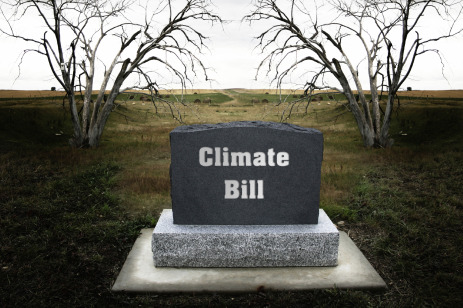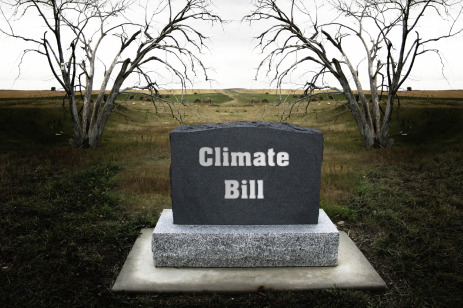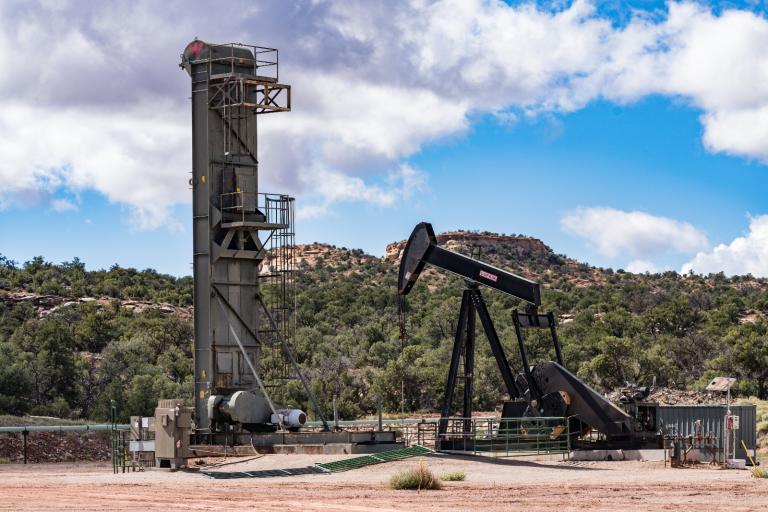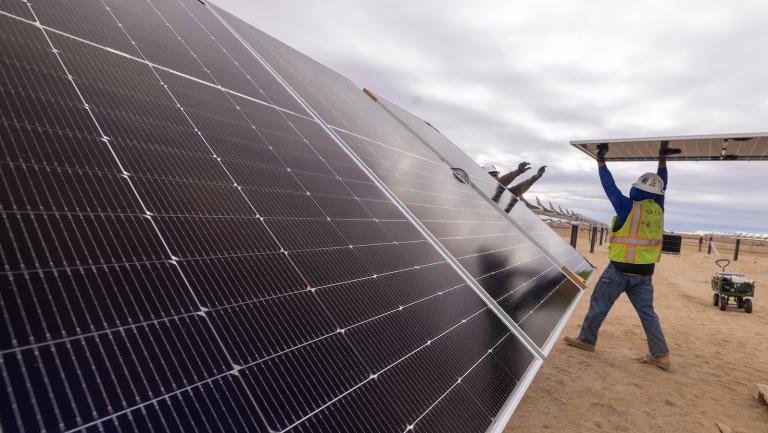 With the climate bill officially dead, there’s already a trickle of “who’s to blame and what they should have done differently” pieces. I expect it will soon become a flood.
With the climate bill officially dead, there’s already a trickle of “who’s to blame and what they should have done differently” pieces. I expect it will soon become a flood.
Most of these pieces will focus in the wrong places. Take Lee Wasserman’s new op-ed, “Four Ways to Kill a Climate Bill,” an instant classic of the genre. Wasserman doesn’t like the way Dems talked about the issue and he doesn’t like the policy framework they put forward, which is of course his right. But the implication of the piece is that if Dems had talked the way he wanted them to talk, and put forward the bill he wanted them to put forward, the outcome would have been different. There’s just no reason at all to think that’s true.
Expect to see all sorts of pieces arguing that better “messaging” could have saved the day, e.g., this piece on Daily Kos. Others will argue that their particular policy pony — carbon tax, or cap-and-dividend, or massive R&D money — would have been victorious. Others will argue that demonizing energy incumbents to fire up the base would have worked. Others will blame Obama for not riding to the rescue (Randy’s got a roundup of these).
All this is well-meaning, but it misses the biggest impediments. I don’t think messaging, policy design, or base mobilization are irrelevant — I’ve written plenty about all of them — but their effects were marginal relative to other structural factors. Were I doing an autopsy on the death of the bill, here are the causal factors I’d single out, listed in order of significance:
1. The broken Senate
The U.S. Senate is already an unrepresentative institution: Wyoming’s two senators each represent 272,000 people; California’s two senators each represent 18,481,000 people. On top of this undemocratic structure is a series of rules that have been abused with increasing frequency.
The main one, of course, is the default supermajority requirement that’s been imposed by abuse of the filibuster. I’ll have much more to say on this soon, but suffice to say, the supermajority requirement has perverse, deleterious consequences that extend much farther than most progressives seem to understand.
For a complex, contentious, and regionally charged issue like climate change, the supermajority requirement presents a virtually insuperable barrier to action. I don’t think we would have the climate bill of our dreams if only 51 votes were required, but I’m fairly sure something along the lines of Waxman-Markey or stronger could have made it over the finish line.
2. The economy
You may have noticed that Americans aren’t in a very good mood right now. Unemployment is high and people are suffering. Given that most people don’t follow politics very closely, or at all, that translates to anger and suspicion toward whoever’s in power (despite the fact that, yes, it’s Bush and the Republicans who are responsible for both the economic downturn and the deficit).
Yes, the left could have done a better job of framing a climate/energy bill as an economic boost — mainly by starting earlier and being much more consistent — but the fact is, the environment-vs.-economy frame has been established by a well-funded 40-year campaign on the right. It can’t be overturned in two years. The American people were just bound to be indifferent and/or suspicious of grand environmental initiatives during a time of economic pain.
Those two are the biggies. Three more I’d elevate to the second tier:
3. Republican obstructionism
The minute Obama was elected, Republicans decided en masse to pursue a strategy of total, hysterical opposition. It’s worth noting that that this strategy has largely been a failure, at least in policy terms. As this Maddow segment makes crystal clear, Obama and the Dem Congress have actually been extraordinarily productive:
[vodpod id=ExternalVideo.1012194&w=425&h=350&fv=launch%3D38389103%26width%3D400%26height%3D320]
The strategy has accomplished two things, however. First, it has effectively slowed everything down. Abuse of Senate rules, coupled with simple bad faith and mendacity, has allowed Republicans to make everything take much longer than anyone anticipated. Climate was third in line after health care and financial reform, and time just ran out.
Second, Republican opposition has radically empowered Democratic “centrists” (which is what they call conservatives in the Beltway). This has been true on everything, of course — it’s the reason stimulus, health care, and financial reform all fell short of what’s needed. But on climate it spelled doom. Energy is such a regional issue that there’s an unusually large group of wavering Dems. The fact that not a single Republican was willing to budge meant that every single one of those “centrist” Dems had the power to block the bill.
4. “Centrist” Democrats
There’s a set of Democrats in the Senate, mostly from Midwest and coal states, who had legitimate concerns about the effect climate legislation would have on their states’ residents and industries. As it turns out, those concerns had been addressed in the House legislation. There were protections for trade-exposed industries. There were dividends for low- and middle-income ratepayers. There were efficiency programs to drive down energy bills (even if energy rates went up). There were explicit and implicit supports for various carbon-intensive industries, including free permits and loan guarantees. By any reasonable policy standard, “centrist” Dems should have supported the bill.
It’s not as if this stuff wasn’t explained to them, over and over and over, by experts in testimony and by bill supporters like John Kerry in dozens of private meetings. They just willfully refused to understand. They worried about the short-term political optics of supporting a bill that had been successfully demonized by Republicans, so they played dumb. They were cowards, as Paul Krugman points out today.
5. Obama
Lots of greens fault Obama for not mounting a more vigorous campaign for the climate bill when it finally came to the Senate. There’s something to that. I certainly wish he had, though realistically I doubt he had enough political leverage left by then to change any votes.
Obama’s more fateful decision, however, came earlier, when he decided to put health care reform and financial regulation ahead of climate. There’s a case to be made that nobody could have known, early on, how vicious Republican obstructionism would be, but I for one don’t buy it. Republicans have known nothing but vicious obstructionism since Newt Gingrich became speaker in 1994. Climate is, objectively, more important than health care reform; if Obama agreed, as he said he did, he should have taken the political risk to reflect that in his strategy.
——
In truth, No. 1 alone was probably enough to doom the bill. No. 1 coupled with No. 2 was certainly enough. Add Nos. 3-5 and failure was overdetermined. That means the stuff people spend way more time talking about — messaging, mobilizing the base, crafting alternative carbon policies — were of basically marginal importance to the outcome this year.
Now, let me be clear: it’s perfectly legitimate to argue that better messaging is needed, that a bro
ader movement is needed, or that an alternative legislative strategy is preferable. These are important topics in the long-term climate fight; I write about them all the time. I’m not telling anybody they have to like or support the Dem strategy of 2008-2010. I didn’t like it much myself! It’s important to have an open and frank discussion about the best way to proceed from here.
However, it’s another thing entirely to argue that your favored alternatives would have led to a successful outcome in the Senate in 2010. That’s almost certainly not true. The fact is, there was probably no combination of policy and messaging that had a chance in these particular circumstances. It’s depressing, but there’s no point pretending otherwise.




